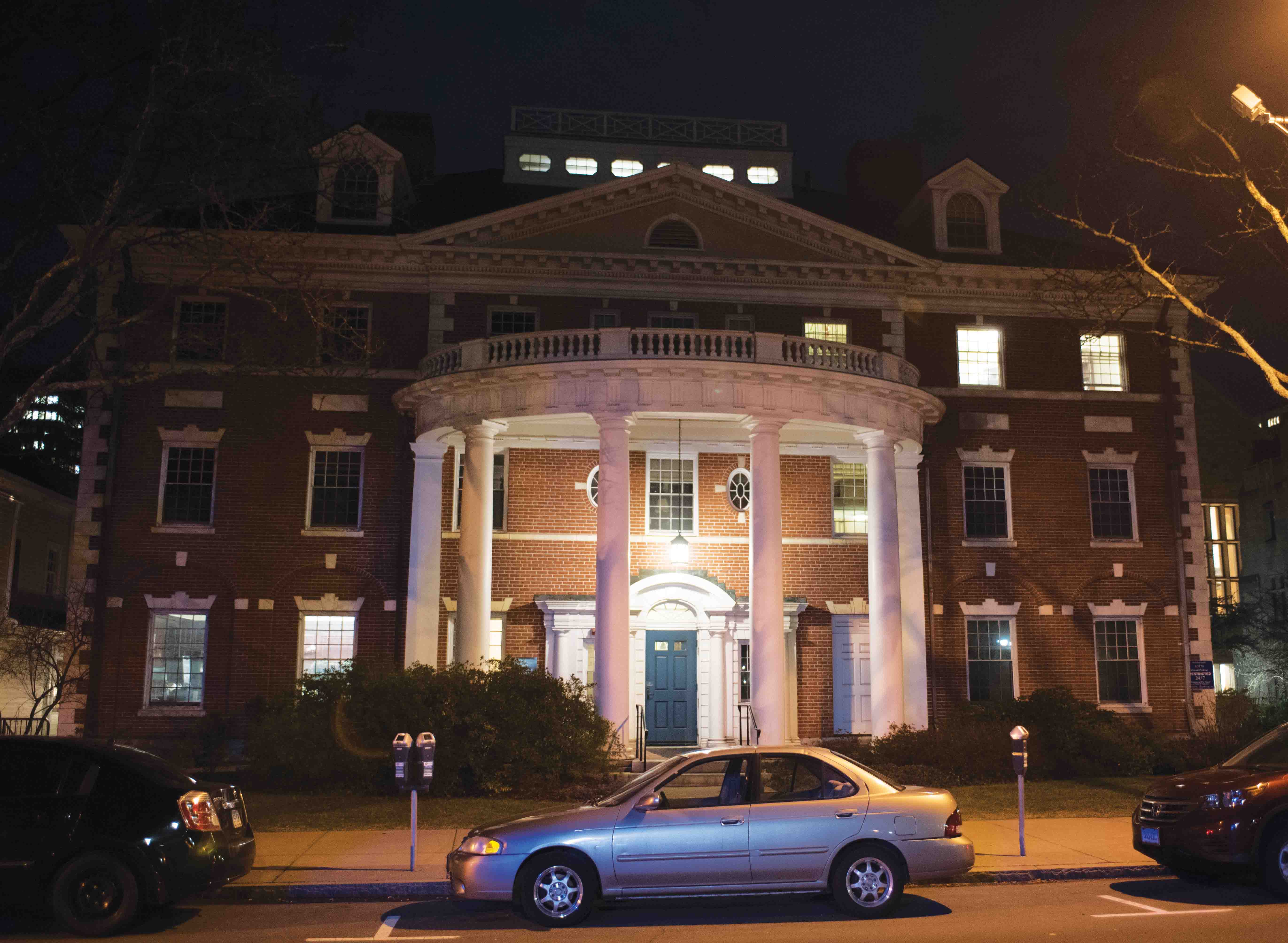
Despite the increasing secularity of Yale College students, the Religious Studies Department continues to attract students as one of Yale’s enduring humanities programs.
A Pew Report conducted in 2014 found that 36 percent of younger millennials and 34 percent of older millennials born in the 1980s identify as either atheists, agnostics or unaffiliated, compared with 23 percent of the preceding generation. Similarly, a survey conducted by the News and distributed to the Class of 2020 found that 28 percent of the over 1,000 freshman respondents said they were “not very religious,” and 34 percent reported being “not religious at all.” But as the younger generation turns away from organized religion, the interest in religion among Yale students has not diminished as significantly, as evidenced by the number of students enrolled in Religious Studies courses, according to Kathryn Lofton, chair of the Department of Religious Studies.
“Religious studies has no relationship to religious identity,” Lofton said. “Religious identity is that data of what religious studies thinks about, which is how communities create systems of values.”
Lofton said the number of Religious Studies majors decreased in the early 2000s, which also corresponded with an overall decrease in humanities majors as a result of trends of “professionalization” in American colleges. However, this decrease did not affect enrollment in Religious Studies lectures and seminars, and many of these classes continue to hit maximum capacity each semester, she said. Furthermore, since 2002, the popularity of the Religious Studies major has remained fairly constant, along with other humanities majors like Classics and French. In any given year, the Religious Studies Department graduates between three and 11 majors.
She noted that the recent hiring of new faculty as an indicator of the department’s popularity.
“It’s an area of revival intellectual growth by the scheme of the humanities. When there’s a hiring in something at Yale it usually indicates that it’s considered a pretty deep and exciting area of intellectual research,” Lofton said.
Lofton identified three areas in which the Religious Studies Department has “long-standing strength and presence.” The oldest of these is the field of premodern religion with a focus on the Roman Empire, Jewish Law, Early Indian Philosophy and Islam.
Frank Griffel, professor of Islamic Studies, said that though some of his students are Muslim and are interested in learning about their own religious tradition, these students are also interested in Islamic Studies because the field is currently “interesting and vibrant.”
“There is philosophy and theology in Islam, the Quran, which is an enigmatic and fascinating book of revelation, mystic traditions and of course, the whole field of modern and contemporary Islam, including Islamic fundamentalism, the Salafiyya movement, and the Jihad movements,” Griffel said. “All this together is difficult to make sense of, which I think is one of Islamic studies’s intellectual fascinations.”
The department also offers seminars on philosophical inquiry as well as religion and modernity. These seminars, which usually fill up each semester, explore questions of existentialism and metaphysics, and feature philosophers who are defined by their atheism. Lofton herself focuses on the intersections between religious concepts and popular culture.
“When do groups of people ever agree on something and what does that collectivity mean when it gets institutionalized in systems of law, philosophy, and cultural accountability?” Lofton asked.
For example, Lofton said she is more interested in people who are obsessed with the fantasy-universe of My Little Ponies — who identify themselves as “bronies” — than she is with followers of the Evangelical Lutheran Church, especially since data shows that the “bronie” following has more followers today than the Evangelical Lutheran Church.
Eric DeVilliers ’17, a Religious Studies major, said he first started thinking about pursuing religious studies when he was in high school.
“When I thought about what I wanted to do, the biggest question I felt that anyone in their life could make was on the questions that religion tried to answer,” DeVilliers said. “Even if you’re atheist or agnostic, you’re making a decision that’s affecting your life in incredibly fundamental ways. If I can’t really master that or pursue that, then nothing else really makes much sense to do.”
DeVilliers, who identifies as religious, was close to not majoring in Religious Studies because of his own religious identity. He said that the Religious Studies Department did not seem to be a particularly religious department because it approached the concept of religion in a secular manner. DeVilliers said he found this approach unnerving at first, but ultimately, he said that engagement with these different ideas helped strengthen his own faith. Though DeVilliers could not speak to the religious backgrounds of all the other majors in the department, he said that in his junior seminar for prospective Religious Studies majors, two of his classmates identified as atheists and two identified as at least somewhat religious.
Raymond Mejico ’17, a Religious Studies major who identified himself as culturally Catholic, said that the department focuses more on religion as a concept rather than a theology. Though he thinks that these are important and interesting questions to ask, he said he is more interested in pursuing studies in Catholic theology, which he felt the Religious Studies major’s curriculum lacked.
The Department of Religious Studies was established in its present form in 1963.







